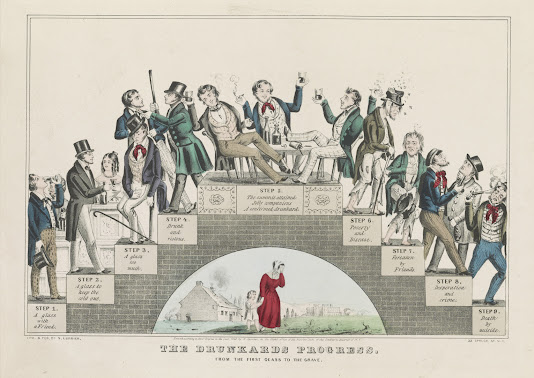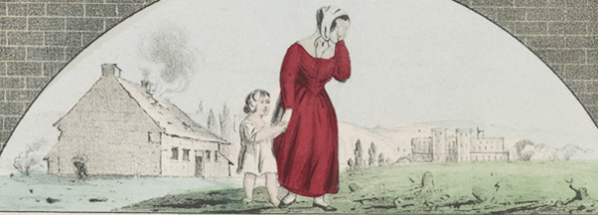We now come to the last chapter of 1 Corinthians namely chapter 16. When this letter was originally written there were no chapter and verses added to it. Let us remember that this was a letter St Paul wrote and it involved real people who loved Jesus Christ and wanted to serve him. We sometimes might think that there wasn’t much social movement in the ancient world. With the Roman peace at the time of St Paul people could move around freely and this is one of the main reasons why the Church grew so fast. The churches at this time also at times knew how to move on the international scale. Let’s begin by looking at the whole chapter;
Instructions and Greetings
1 Now concerning the collection for the saints, as I directed the churches of Galatia, so do you also. 2 On the first day of every week each one of you is to put aside and save, as he may prosper, so that no collections be made when I come. 3 When I arrive, whomever you may approve, I will send them with letters to carry your gift to Jerusalem; 4 and if it is fitting for me to go also, they will go with me.
5 But I will come to you after I go through Macedonia, for I am going through Macedonia; 6 and perhaps I will stay with you, or even spend the winter, so that you may send me on my way wherever I may go. 7 For I do not wish to see you now just in passing; for I hope to remain with you for some time, if the Lord permits. 8 But I will remain in Ephesus until Pentecost; 9 for a wide door for effective service has opened to me, and there are many adversaries.
10 Now if Timothy comes, see that he is with you without cause to be afraid, for he is doing the Lord’s work, as I also am. 11 So let no one despise him. But send him on his way in peace, so that he may come to me; for I expect him with the brethren.
12 But concerning Apollos our brother, I encouraged him greatly to come to you with the brethren; and it was not at all his desire to come now, but he will come when he has opportunity.
13 Be on the alert, stand firm in the faith, act like men, be strong. 14 Let all that you do be done in love.
15 Now I urge you, brethren (you know the household of Stephanas, that they were the first fruits of Achaia, and that they have devoted themselves for ministry to the saints), 16 that you also be in subjection to such men and to everyone who helps in the work and labours. 17 I rejoice over the coming of Stephanas and Fortunatus and Achaicus, because they have supplied what was lacking on your part. 18 For they have refreshed my spirit and yours. Therefore, acknowledge such men.
19 The churches of Asia greet you. Aquila and Prisca greet you heartily in the Lord, with the church that is in their house. 20 All the brethren greet you. Greet one another with a holy kiss.
21 The greeting is in my own hand—Paul. 22 If anyone does not love the Lord, he is to be accursed. Maranatha. 23 The grace of the Lord Jesus be with you. 24 My love be with you all in Christ Jesus. Amen. 1 Corinthians 16 NASB
You can see straight away that there was a collection for the Church in Jerusalem. The Church is one big family and wherever there is a need, the needs were met. Paul wanted to spend time at Corinth and eventually stayed there for a while. This chapter is buzzing with life with itinerant preachers and teachers passing through and building the church. At the same time however, there were the trouble makes inside the Church trying to take advantage. Verse 22 is a hard verse. If anyone does not love the Lord let him be accursed. I don’t believe he is talking about outsiders but those who wiggles there way into the Church pretending to be part of the church and bringing false teachings with them. There are a lot of names in this chapter;
- Timothy
- Apollos
- household of Stephanas
- Stephanas and Fortunatus and Achaicus
- Aquila and Prisca
- We know about Timothy because two letters were sent to him and he was an important ambassador for the Gospel. Paul really trusted him.
- Apollos was a top theologian and some think that he wrote the book of Hebrews because of its Alexandrian style not Paul. The first four verses of Hebrews are one sentence. I don’t believe that Paul could have written this way.
- “Stephanas has been supposed by some to have been the repentant “jailer of Philippi” (comp. Acts 16:33). The First Epistle to the Corinthians was written from Ephesus some six years after the jailer’s conversion, and he was with the apostle there at that time.” From https://en.wikipedia.org/wiki/Stephanas
- “ I was glad when Stephanas, Fortunatus and Achaicus arrived, because they have supplied what was lacking from you Teignmouth Shore, writing in Ellicott’s Commentary for Modern Readers, suggests that Stephanas, Fortunatus and Achaicus had come from Corinth to Ephesus, probably with the letter from the Corinthians (1 Corinthians 7:1) to which Paul was sending a response.[6] Paul urged the church in Corinth to “be in subjection to such men and to everyone who helps in the work and labours” and to “acknowledge such men”.” From https://en.wikipedia.org/wiki/Stephanas
- Priscilla (/prɪˈsɪlə/; Greek: Πρίσκιλλα, Priskilla or sometimes misspelled as Priscila) and Aquila (/ˈækwɪlə/; Greek: Ἀκύλας, Akylas) were a first century Christian missionary married couple described in the New Testament. Aquila is traditionally listed among the Seventy Disciples. They lived, worked, and travelled with the Apostle Paul, who described them as his “fellow workers in Christ Jesus” (Romans 16:3).[1] Priscilla and Aquila are described in the New Testament as providing a presence that strengthened the early Christian churches. Paul was generous in his recognition and acknowledgment of his indebtedness to them (Romans 16:3–4). Together, they are credited with instructing Apollos, a major evangelist of the first century, and “[explaining] to him the way of God more accurately” (Acts 18:26). It is thought by some to be possible, in light of her apparent prominence, that Priscilla held the office of presbyter.[2] She also is thought by some to be the anonymous author of the Epistle to the Hebrews.[3] from https://en.wikipedia.org/wiki/Priscilla_and_Aquila
So, we have some very powerful members in the Church. I found it interesting that some think that Priscilla wrote the Book of Hebrews. I would ask the question; Was she trained in Alexandrian grammar? She would need this in her job description. If the answer is ‘no’, then she is certainly not a contender. That brings us to the end of our study on 1 Corinthians! Wow what a city! Life in the first century then wasn’t necessarily that slow. I am so glad that this book is in the Bible because it helps us now in the 21st century. They were ordinary people just like us today and they also had fast food shops like we have. They were into beauty and staying clean like we are. They were a literate society like we are. They had children and family problems and quarrels like we have today. We really need to listen to what God is trying to teach us in this letter of St Paul.
This was just a quick study but perhaps I want to later look at the book even deeper but I have to say those who followed this study will have a greater understanding of what life was like for Christians at the time of Paul. Not long after these times great persecutions came into the ancient world. The destruction of the temple in AD 70; the burning of Christians and feeding them to the lions under Nero and other emperors of the time. The Jewish and Christian religions made it through to the modern era which is an amazing feat.





